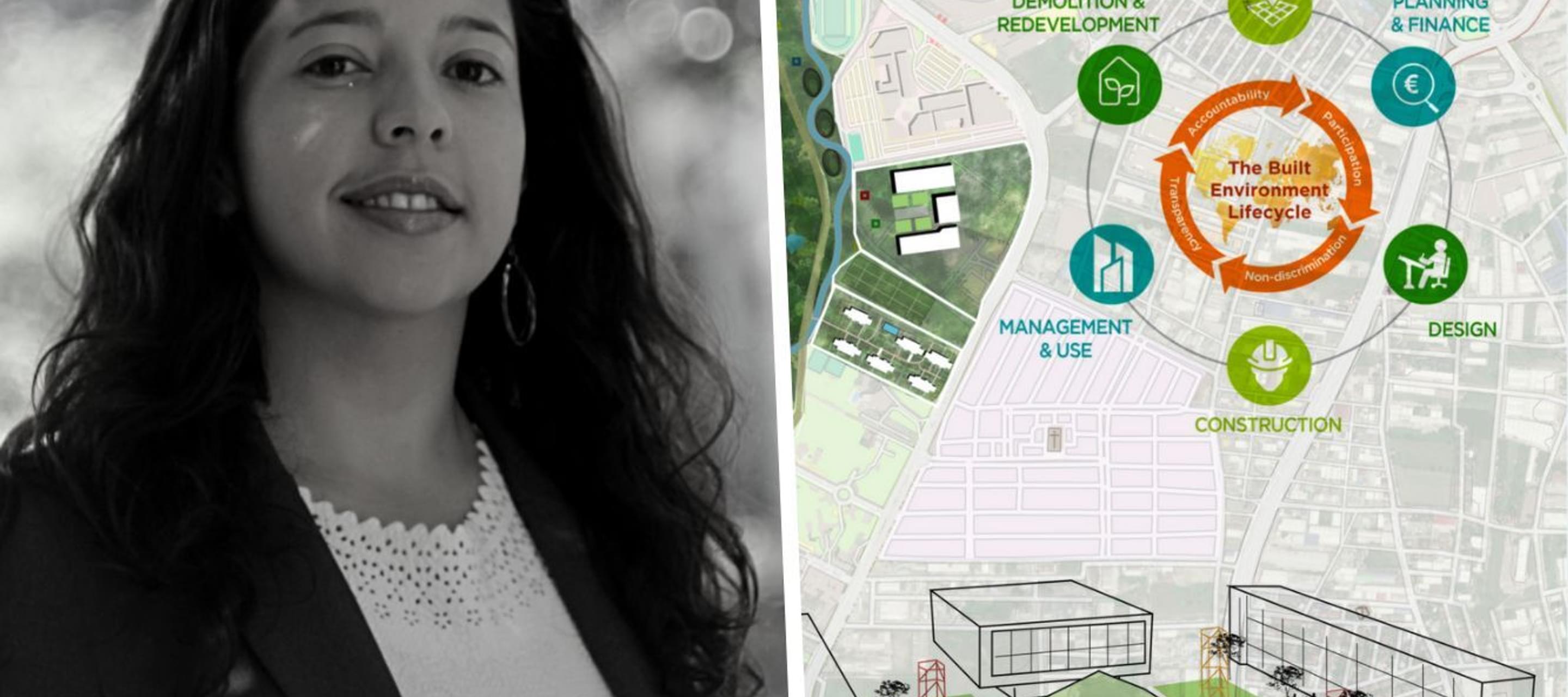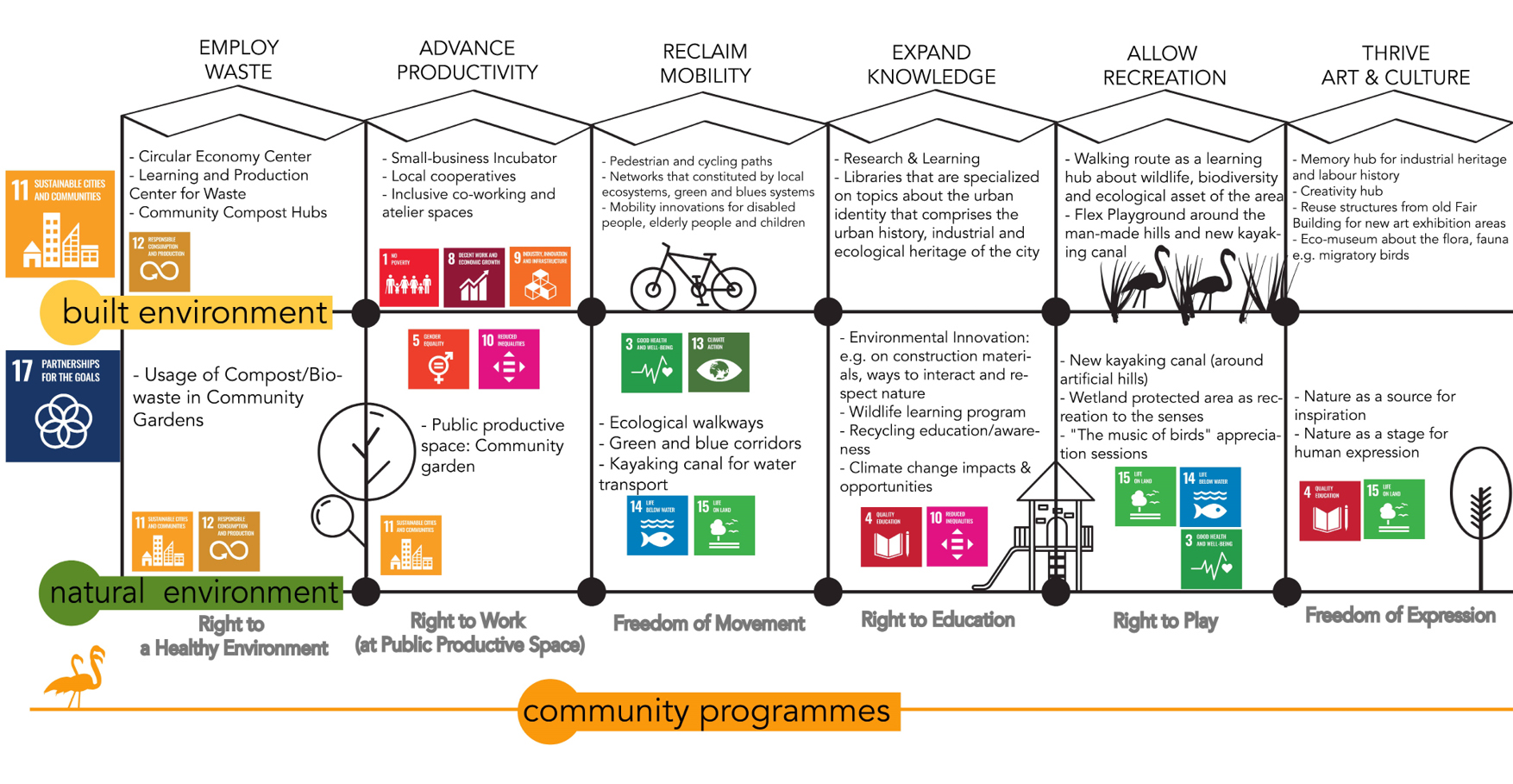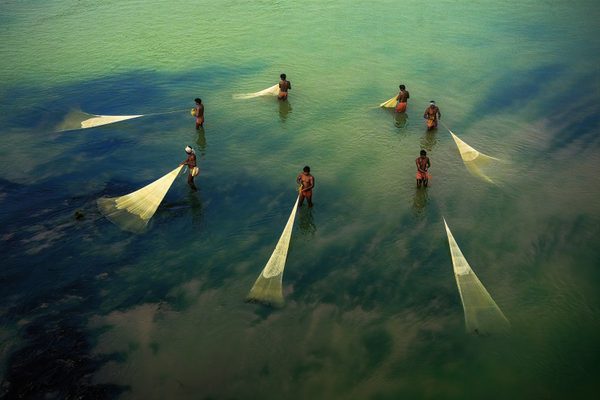Alejandra Rivera Brings the Dignity by Design Framework to an Urban Design Workshop in Turkey
11 April 2022

From 19-25 March, 2022 Alejandra Rivera, IHRB’s Built Environment Research Consultant represented the expertise area of “Human Rights in the Built Environment” at the ‘Young Planning Professional’s Workshop in Koaceli, Turkey.
Organised by the International Society of City and Regional Planners (ISCOCARP), the workshop convened 25 urban professionals from 15 countries and 10 disciplines to propose ideas for the redesign of the public space of Interteks International Fair Area located in the Izmit Gulf. Key considerations included the area’s fragile biodiversity, waterfront location, decaying infrastructure, industrial surroundings, spatial segregation, and underutilised and disconnected public spaces. While this posed multiple challenges, it also offered unique opportunities to harness urban design as a driver for resiliency and spatial justice.
Working collaboratively with four other urban professionals: Nazlican Akci (Turkey), Oluwafemi Ojo (Nigeria), Sümeyye Yazici (Turkey), and Thato Mothaping (Botswana), she employed IHRB’s ‘Dignity by Design’ Framework and the Built Environment lifecycle approach as tools to incorporate the human rights lens into an urban renovation project premised on “Thriving Inter-Flex: Inter-weaving the built and natural environments in a just way”.
Key aspects of the plan were: a flexible innovation hub with uses dictated by community needs, the regeneration of green and blue corridors to allow enjoyable spaces for people and nature; and a circular approach by reusing existing structures and resources.

Summary of spatial proposals
Using a human rights approach, the conceptual framework for these interventions identified 6 areas of opportunity in order to: (1) employ waste, (2) advance productivity, (3) reclaim mobility, (4) expand knowledge, (5) allow recreation, and (6) thrive arts & culture – each one having direct benefits in the built and natural environments.
 Conceptual framework for the proposed interventions: A human-rights approach
Conceptual framework for the proposed interventions: A human-rights approach
Alejandra’s main recommendations for the implementation of this project included:
- A participatory approach: starting with stakeholder mapping to identify and engage with all 5 sectors of the city: public, private, universities, NGOs, and local to ensure the interventions are relevant, effective and successful
- Social considerations throughout the Built Environment lifecycle: Social Justice is not only achieved in planning, but it should be present in all the stages of the project’s lifecycle for which the ‘Dignity by Design’ Framework is a fundamental tool.
- Cross-cutting Human Rights principles: of accountability, transparency, non-discrimination, and participation throughout the whole process.
This proposal was presented at the Kartepe Zirvesi Summit on March 25th, to Kocaeli Büyükşehir Belediyesi’s mayor Tahir Büyükakın, other city officials, members of the Marmara Municipalities Union (MMU), and urban practitioners from Turkey and abroad. The proposed interventions and recommendations are currently under review by the Kocaeli Municipality.
This is an example on how IHRB tools can be used practically in urban design projects by local governments, as well as by architects, developers, investors, and local stakeholders to advance social justice and to protect human rights in the built environment.
Interested in learning more about this approach and how it could be applied in built environment projects? Get in touch with the Built Environment Team: Alejandra Rivera (Research Consultant) Andreia Fidalgo (Programme Manager) or Annabel Short (Senior Advisor)



